Meltio Robot Cell Offers Plug-and-Play Robotic Arm Solution
The Robot Cell is compatible with Meltio’s open hardware platform, enabling users to integrate a metal 3D printhead into any brand of robotic arm, offering a faster and better user experience.
Share
Read Next
Meltio’s Robot Cell offers an intuitive plug-and-play solution, enabling customers to receive a ready-to-use cell for robotic metal 3D printing. Photo Credit: Meltio
Meltio’s Robot Cell is a turnkey metal additive manufacturing (AM) solution which is said to boost the performance of a industrial robotic arm in a safer, more reliable and highly accurate way. It’s part of the company’s wire-laser metal directed energy deposition (DED) technology developed to reduce costs and improve manufacturing processes.
The Robot Cell is a turnkey solution for the Meltio Engine Robot Integration, offering an intuitive plug-and-play solution, enabling customers to receive a ready-to-use cell for robotic metal 3D printing. The cell is compatible with Meltio’s open hardware platform which enables users to integrate a metal 3D printhead into any brand of robotic arm, offering a faster and better user experience.
Utilizing the Engine Robot Integration enables large-scale metal 3D printing in which users can turn a robot arm into a metal 3D printing system with no inherent size constraints. The company says the Meltio Engine integrates with any robot arm manufacturer and interface on the market. The platform is well suited for large and complex 3D printing, repair, cladding and feature addition.
The volume and work area defined in the Meltio Robot Cell workspace meets all manufacturing needs using industrial-level AM technology to take full advantage of Meltio’s metal 3D printhead. It is able to autonomously manufacture parts in an industrial environment thanks to its monitoring and safety features. The robot and positioner are installed on a self-supporting platform, laser-safe enclosure together with the Meltio Engine, Meltio Space and accessories.
The Robot Cell is designed as a plug-and-play system, with a single electrical power supply and a single inert gas supply. The environmental conditions are standard and the cell cannot be outdoors or unprotected from the sun and dust as it must be in a controlled environment. This solution enables the customer to receive a product ready to use for robotic metal 3D printing. The cell is certified and tested to operate with an ABB robotic arm as a standard configuration.
“Meltio's main commitment with the launch of Meltio Robot Cell is to offer all types of industries the ability to manage the entire manufacturing process using our metal 3D printing technology,” says Alejandro Nieto, Meltio Engine product manager. “This new hardware system allows the customer to receive a ready-to-use cell for robotic metal 3D printing, removing the integration process and long assembly lead times.”
- Read about Meltio’s software that simplifies wire-laser metal 3D printing technology. The Meltio Space robot slicer employs a virtual model of the real robot movement.
- Learn how Meltio augments wire-laser metal 3D printing technology for easier use and reliability. The latest technology was developed to make the M450 metal 3D printer, Engine CNC Integration and Engine Robot Integration faster, more precise, easier to use and more reliable.
Related Content
-
3D Printed End of Arm Tooling Aids Automation
Frustrations with traditional end of arm tooling led Richard Savage to start 3D printing custom versions for injection molding applications, eventually founding a company to fill this niche.
-
DMG MORI: Build Plate “Pucks” Cut Postprocessing Time by 80%
For spinal implants and other small 3D printed parts made through laser powder bed fusion, separate clampable units resting within the build plate provide for easy transfer to a CNC lathe.
-
Aircraft Engine MRO: How Additive Manufacturing Plus Robotic Finishing Will Expand Capacity for Blade Repair
AM offers the chance to bring fast, automated processing to individualized, part-by-part restoration of turbomachinery. A cell developed by Acme Manufacturing and Optomec is able to automatically repair 85,000 unique aircraft engine blades per year.



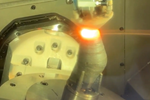
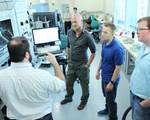
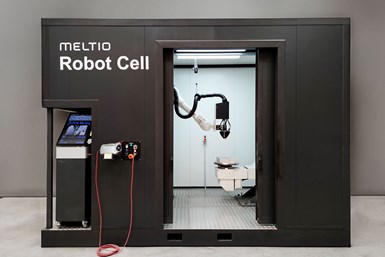
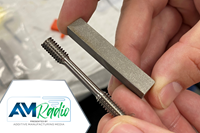
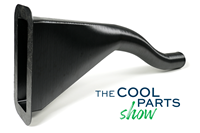
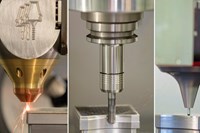



.png;maxWidth=300;quality=90)




